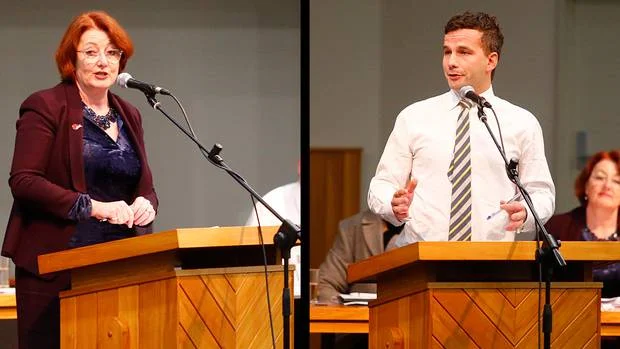By Derek Cheng.
MPs opposing a bill that would legalise euthanasia are planning to put up more than 100 amendments that could push its possible passage well into next year.
But Act leader David Seymour, whose End of Life Choice bill is expected to have a second reading on Wednesday, says "wasting Parliament's time" could backfire and firm up MPs' support for the bill.
Seymour is confident a majority of MPs will support the bill's second reading, which is a conscience vote but has the conditional support of the Greens and New Zealand First, as long as certain amendments are adopted.
But opponents, led by National MP Maggie Barry, believe the vote will go to the wire.
A vote may take place late on Wednesday evening, but if there is not enough time, the next day the vote could happen is on the next members' day on July 31.
As currently drafted, the bill would allow New Zealanders to request assisted dying if they have a terminal illness or suffer from "a grievous and irremediable medical condition".
If it passes the second reading, Seymour has promised to amend it in its clause-by-clause committee stages to limit euthanasia only to people who have "a terminal illness that is likely to end the person's life within six months", and to state that age, disability or mental illness cannot be reasons to grant consent.
But Barry also has proposed amendments - about 120 of them - that could push the bill's possible passage into the middle of next year.
She said the amendments were not filibustering, but genuine changes to improve the bill.
"These aren't things that we're just dreaming up, like changing the name of the bill or putting a comma in here, none of that nonsense," Barry said.
"I'd rather it didn't go through at all, but I'm only one of 120 MPs and if I can't stop it, I'll do all I can to stop the worst excesses of it."
She noted the full-page advertisement in the Herald from 1000 doctors against the bill.
"I'm not going to allow it to go through with doctors as a part of it. Pointing out the issues with dementia and ensuring there are two psychogeriatricians to assess someone's capacity - those are the kinds of things I'll put forward."
Seymour said doctors could already choose not to take part in the process, but they should not be allowed to deny people's choices.
He said it was nonsense to put up more than 100 amendments and then claim it wasn't filibustering.
“There's 28 sections to the bill. They want 100 amendments ... This idea of filibustering, the New Zealand public and my fellow MPs are going to have some tolerance wasting Parliament's time, but it will run out at some point.
"They might find MPs are not particularly impressed by that tactic and it may strengthen the resolve of those favouring choice."
Barry also attacked Seymour for saying that "the Sunday after the vote, the confessionals will be filled with people who have acted in quite disappointing ways misleading the public about my bill".
Barry called it a "silly cheap shot" on faith-based people.
"He has attempted to make it personal at different times to different groups, and I think that's deplorable. It's a much more important conversation than that and it's much bigger, even though he might not like to admit it, than even David Seymour."
Seymour responded by saying he hoped Barry had not lost her sense of humour.
The bill passed its first reading by 76 votes to 44, but many MPs only committed to supporting the bill to select committee.
It is a conscience vote, meaning MPs can vote how they please, though Green Party MPs will support the bill at the second reading, with ongoing support dependent on whether Seymour's proposed amendments pass.
New Zealand First is also expected to support the second reading, but will only support it further if an amendment is adopted for a binding referendum on the bill at the next election.

